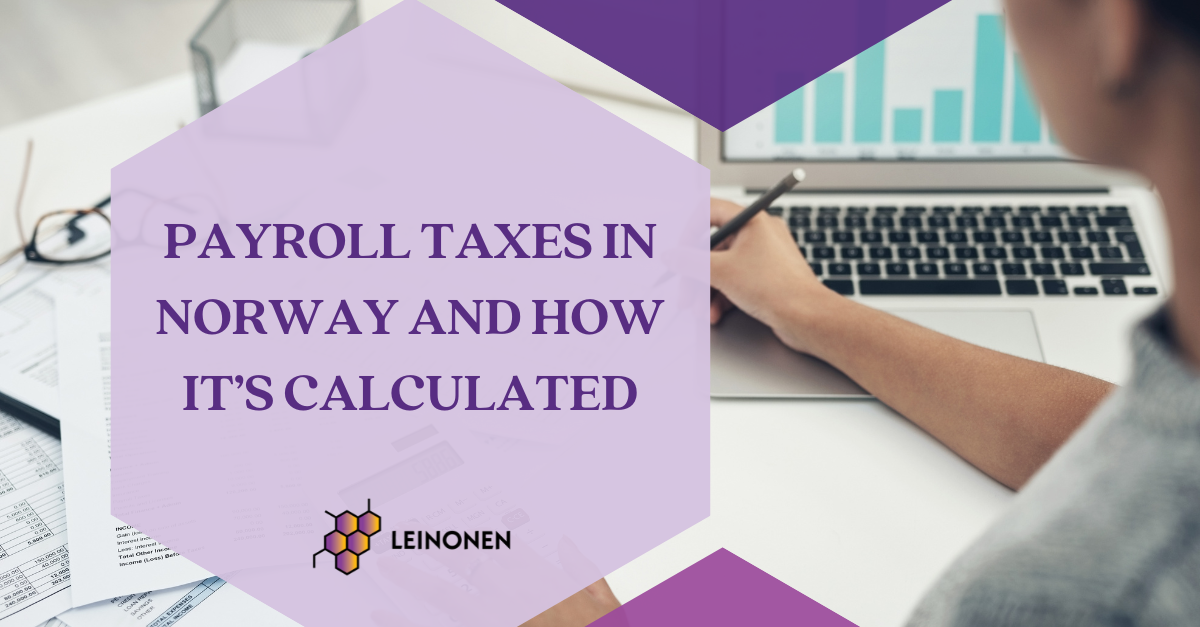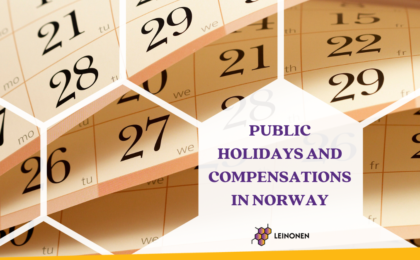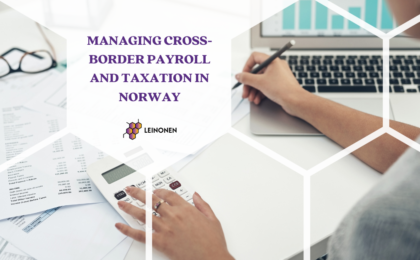Payroll taxes in Norway can have a significant impact on an employee’s take-home pay. These taxes are calculated based on various factors, including the employee’s salary, benefits, and other additional costs. Understanding how these calculations work is essential for both employers and employees in Norway.
In Norway, the payroll can be a fixed monthly amount (“fastlønn”), an hourly rate (“timelønn”), or a weekly wage (“ukelønn”). Bonuses and irregular additions are also considered part of the payroll. However, the amount that actually goes into an employee’s bank account is the net salary, which is the gross salary minus taxes.
The total cost of an employee includes several components. One of these is the holiday money, which is either 10.2% or 12% of the gross salary, depending on the minimum vacation requirements or agreed-upon five weeks of vacation. For employees older than 60 years, the holiday money percentage is minimum 12.5% and can be 14.3%.
WHAT ARE THE MAIN COMPONENTS OF THE SALARY?
Another component is the social cost, which varies based on where the employee works and pays taxes. It can range from 0% in Northern Norway to 14.1% in South. can range from 0% in North Norway to 14.1% in other regions. If an employee’s salary exceeds 750,000 NOK, an additional 5% is required for the portion above that threshold. Along with these costs, employers must also contribute 2% of the employee’s salary towards pension costs, known as OTP, and pay the social cost of the pension cost. Occupational injury insurance is also required, with the price varying depending on the industry.
To illustrate the impact of these costs, let’s consider an employee with a gross salary of 500,000 NOK. In this case, the additional costs, including holiday money, social costs, pension costs, and occupational injury insurance, can amount to almost 100,000 NOK. Therefore, the total cost for the employer would be 600,000 NOK.
Salaries in Norway are generally considered high, which can help explain the high cost of living in the country. The average monthly salary in 2022 is around 53,150 NOK, but the median salary of 47,755 NOK provides a more realistic average. It’s important to note that while some individuals earn significant salaries, there is also a range of salaries on the lower end of the scale.
Also, employee benefits in Norway can impact payroll taxes. Certain benefits, such as newspaper subscriptions, home PCs, company health services, and free parking, can be received without incurring taxes. However, benefits like gym memberships, which are paid for by the employer, are subject to taxation.
MINIMUM SALARY, OVERTIME WORK AND PUBLIC HOLIDAYS
When it comes to the minimum salary in Norway, there is no legislated minimum wage. However, there are exceptions for employees in certain industries, such as construction, cleaning workers, hotel, restaurant and catering, the maritime construction industry, agriculture and horticulture, fish processing enterprises, electricians, freight transport by road and passenger transport by tour bus. The purpose of these exceptions is to prevent employees with foreign backgrounds from receiving lower salaries than the Norwegian standard. Some unions may also have agreements with employers that specify minimum salary requirements and other working conditions.
Overtime regulations in Norway state that any work beyond the limits of normal working hours must be compensated. The limits for normal working hours are set at 9 hours within a 24-hour period and 40 hours within a 7-day period. However, these limits can be lower for specific categories of workers, such as shift workers, those who work on Sundays, or employees in tunnel operations. Employers are permitted to require employees to work overtime only in exceptional cases, and certain restrictions apply regarding total working time.
Public holidays in Norway generally entitle employees to a day off, but there are exceptions for certain industries, such as factories operating 24 hours a day, hotels, health institutions, and police. Exceptional cases also include kiosks, small stores under 100 square meters, cafes, restaurants, petrol stations, and museums. The payment for public holidays is dependent on the employee’s contract. If an employee has a fixed monthly salary, their monthly payroll remains the same regardless of the number of public holidays in a month. However, those with hourly-based salaries are only paid for the hours worked and do not receive additional compensation for public holidays unless they work on those days. Collective agreements between employees and employers often regulate these matters.
Understanding payroll taxes and how they are calculated is crucial for both employers and employees in Norway. It allows for proper budgeting, financial planning, and ensures compliance with tax regulations. Employers should be transparent about the components of an employee’s total cost, and employees should be aware of how taxes impact their net salary. This knowledge is essential for making informed financial decisions and understanding the true value of their work.
CONTACT INFORMATION
Should you have any questions or further information is required, please contact Leinonen Norway (contact@leinonen.no, phone: + 47 919 05 058)




